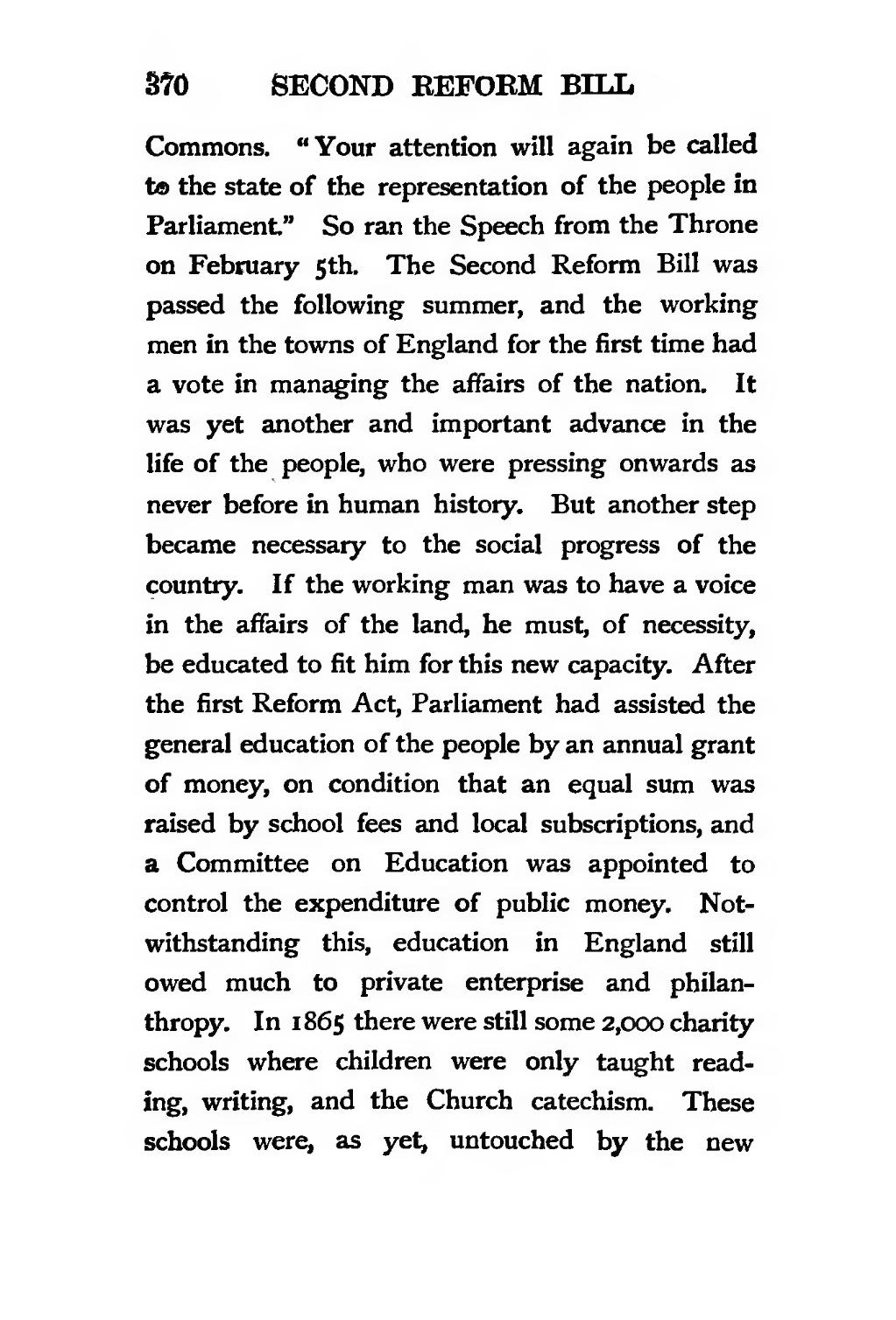Commons. "Your attention will again be called to the state of the representation of the people in Parliament." So ran the Speech from the Throne on February 5th. The Second Reform Bill was passed the following summer, and the working men in the towns of England for the first time had a vote in managing the affairs of the nation. It was yet another and important advance in the life of the people, who were pressing onwards as never before in human history. But another step became necessary to the social progress of the country. If the working man was to have a voice in the affairs of the land, he must, of necessity, be educated to fit him for this new capacity. After the first Reform Act, Parliament had assisted the general education of the people by an annual grant of money, on condition that an equal sum was raised by school fees and local subscriptions, and a Committee on Education was appointed to control the expenditure of public money. Notwithstanding this, education in England still owed much to private enterprise and philanthropy. In 1865 there were still some 2,000 charity schools where children were only taught reading, writing, and the Church catechism. These schools were, as yet, untouched by the new
